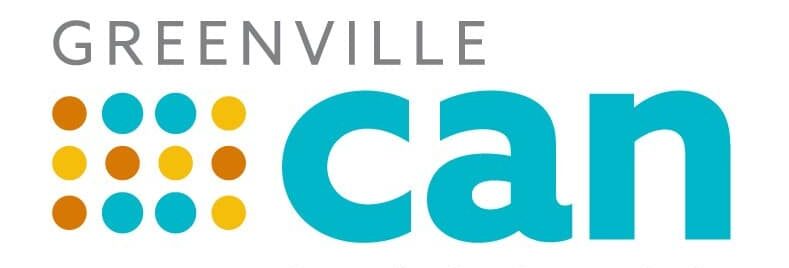Local Success Stories
These are just a few of the many local success stories of individuals with disabilities gainfully employed in our area. If you have a success story you would like to share, please contact Mike Teachey at mike.teachey@greenvillecan.org.

Joel: UPS Inside Sales
1. What is your disability?
When I was five I was diagnosed with Retinitis Pigmentosa (RP). It is a degenerative retinal disease where on average you lose 50% of your vision every 7 years. I was able to attend public schools, graduate with a 4 year Bachelor of Arts in Business Administration with an emphasis on Marketing from Winthrop University, and spent a year in graduate school at UNC Charlotte for my MBA before I determined it was time to go to work.
2. How has as your disability affected your ability to find meaningful employment.
Finding “the right job” is difficult. I cannot drive and travel is difficult so a desk job where the focus is on computer and phone work is necessary.
3. What is the most common misperception that people have about you as a result of your disability?
All disabilities are not created equal, but I have been fortunate enough to live a fairly “normal” life, but there are still many day-to-day challenges. One of the most frequent misconceptions is that since I cannot see well, people think I’m also mentally handicapped. I’ve had many people speak slowly to me or address whomever I’m with instead of me directly.
One time I was in the airport with my fiancé (sorry ladies, I’m taken) and we went up to the counter to ask to be pre-boarded and the young lady said to my fiancé, “Does he need any extra assistance.?” I told her I’m blind not deaf. Other times, if staying in a two story condo house and we are figuring out whom is staying in what room, I always get the first floor. “Joel doesn’t need to go upstairs.” Again, I’m legally blind. There is nothing wrong with my legs.
4. What is your current job and what does it entail?
I currently work as an Inside Sales Rep at UPS here in Greenville. My job is to increase shipping in my territory year over year. Typical sales job. They have been very accommodating.
5. What accommodations if any do you require?
My only additional needs are for a larger monitor and maybe a little extra help getting around the office. They had the monitor for me within the first 3 days of training and everyone is amazingly friendly.
6. If you could tell an employer who is trying to hire more individuals with disabilities anything in the world, what would that be? / advice? Words of wisdom from your experience?
As far as future or current HR departments or employers go, people with disabilities are a rarely tapped portion of the workforce. We are usually very capable. We can usually equal or even exceed others’ performances. It may take a lot more effort or concentration for us, but we are capable. I equate it to taking the SAT for 8 hours a day 5 days a week, but they do pay us the same and have to do what it takes.
I would suggest not judging books by their covers. We are a very large group chomping at the bit to contribute to society. Plus, you can typically get tax credits for hiring us. I consider this a win win.
Thank you for your time and ear…well eyes and please do take every situation and interaction on a case by case basis. You will probably be pleasantly surprised.

Erica: Helping others at SC Commission for the Blind
As an employment consultant for the South Carolina Commission for the Blind, Erica is on the front lines of educating businesses about hiring employees with disabilities. She also knows about reasonable accommodations for someone with a disability. Erica has been legally blind since she was 18. The 2015 Clemson graduate developed retina cancer that eventually affected both eyes. However, that didn’t stop her from being a captain of the Clemson Cheerleading Team.
Erica’s job is to advocate for employees who are blind and provide braille materials and trainings to businesses.
“With the technology available today, there are so many reasonable and affordable accommodations available for the blind and others with disabilities,” says Erica. She is able to use a computer thanks to devices like screen readers and CCTV that enlarge print. “Sometimes it takes just a little bit of effort and people can be independent.”
Like many with disabilities, Erica’s biggest fear was mobility. But thanks to having a state agency as her employer, having a driver is a reasonable accommodation and Erica can go to work.
“Hiring any person with a disability provides a diverse workplace,” says Erica. “Each person has a strength they bring to the mix and employers see the abilities instead of disabilities.”

Josh: Success at Kohl’s
How can you have success in the workplace when employing people with disabilities? One way is having an understanding and sensitive manager working in unison with an agency dedicated to helping adults with intellectual/developmental disabilities (I/DD) find and keep good jobs.
Such is the case at a Kohl’s department store in Columbia, SC, and The Arc of the Midlands, a nonprofit providing supportive employment services for adults with I/DD.
Kohl’s manager Gina Bee grew up with an uncle having Down syndrome. She enjoyed his almost constant smile and seeing all that he overcame in his life. When an employment specialist with The Arc Midlands visited the store and talked about finding work for a client with Down syndrome, Gina was more than willing to help. Josh Glenn, 25, was hired in August 2015 as an ad set associate. Working six to 10 hours a week, Josh is responsible for changing sales signs throughout the store. He then helps to finish stocking in the men’s department.
“He’s a real morale booster for all of us,” says Gina. “We appreciate everything Josh does and how proud he is of working at Kohl’s.” Josh is not treated any differently than other employees and must be able to do his assigned duties. When placing or removing signs, he knows when to use the red ones, green ones or yellow ones, says Gina.
Hiring people with disabilities is a “great opportunity” for employers to give something back to the community and to help someone be successful, Gina says.
“The Kohl’s staff has been incredibly accepting and excited to have our clients employed in their stores,” says Doug Finkelstein, director of business development for Arc Midlands. “Employees with I/DD are not only accepted by Kohl’s, but are highly valued and loved as a member of the team.”
The success Kohl’s had with Josh opened the door for two additional placements from Arc Midlands. One was a seasonal replacement for online order fulfillment, while another Arc Midlands client is employed to unload trucks in the morning.

Josh: Employed at a Restaurant in Landrum
Hiring an employee with a disability is more than a ‘feel good thing” for Patty Otto, owner of The Hare and Hound. Otto has seen many benefits since she hired Josh Lowe, a 28-year-old with autism, to work at the pub and restaurant in downtown Landrum, SC.
“Josh has inspired my employees because they see the progress he has made knowing that he has to work many times harder than the normal person,” she said. “I like to think I’m helping to educate others a little bit on what it’s like to have a disability.” Not only are the 47 employees inspired by Josh’s diligence in rolling tableware in napkins and cleaning tables, but they also cheer for his participation in Special Olympics.
Josh’s pathway to the restaurant began with training at the vocational rehabilitation office in Lyman where he was shown how to “roll napkins.” Patty then offered to hire Josh part-time in the fall of 2015, providing his first job since moving with his family from Ohio in 2010. After perfecting the napkin rolling, Josh progressed to table busing two days a week.
“Josh has bonded with our employees and is now comfortable with our customers. He smiles a lot and is very proud of being in Special Olympics,” said Otto. Getting a regular paycheck with his name on it increases his sense of accomplishment, too. Josh says his job is fun and the workers have become like a second family to him.
Otto has her own family experience with disabilities from having a granddaughter who suffered seizures. She believes that younger entrepreneurs or business-owners are more sensitive to hiring people with disabilities because they were more mainstreamed in their education than older generations.
Once Josh began working at the restaurant, Otto received favorable comments from customers and was surprised at how many said they had someone with a disability in their families.
“It is good for business because it helps educate people to see how someone with a disability can function in a work environment,” adds Otto.

Kendal: Gainfully Employed at TBMC
Kendal was referred to SCVRD’s High School/High Tech program by his high school resource teacher in his senior year, as his resource teacher knew that his learning disability presented a definite challenge and demanded a need for assistance with career exploration and job placement. Kendal saw firsthand the benefits offered in the High School/High Tech program, as he participated in a wide range of interactive group activities to include team building, goal setting, basic job application and interview skills, resume development, building support systems, “True Colors” assessment, and a college campus tour. Kendal also participated in Disability Mentoring Day and successfully completed a job shadow at the National Weather Service. This job shadow sparked an avid interest in the fields of information technology and meteorology – following graduation, SCVRD secured an opportunity for Kendal to participate in a paid internship with the National Weather Service. Kendal took full advantage of this exceptional internship opportunity, as he performed various computer tasks, worked on forecast models, analysis, and assisted meteorologists in researching a climatalogical database, most affectionately known as Datzilla.
Following successful completion of his internship at the National Weather Service, Kendal, while also having an interest in the food service industry and limited work experience, decided to take a job offer working as a line cook at his uncle’s restaurant in Georgia. While this was a good job providing plenty of real-world experience, Kendal decided that he wanted more of a “hands-on” career opportunity, preferably in the manufacturing or technological fields, and decided to move back home to South Carolina to pursue his career interest – SCVRD responded by securing an on-the-job training opportunity with TBMC, Inc., a local manufacturer, regarding a job opening available of a “timing belt cure operator”. Kendal progressed more everyday, successfully completed a two-week on-the-job training, and was hired directly as a permanent full-time timing belt cure operator. Kendal has progressed exceptionally well overall in his job, where he has remained gainfully employed for over four (4) years – he absolutely loves his job and loves going to work everyday; his employer states that he always has an outstanding attitude and continually looks for ways to improve his performance and efficiency for the benefit of the company.

Robert: Returning Veteran
Robert doesn’t pull any punches. He’s the kind of guy who tells it like it is. For example, ask him why he decided to join the military and he’ll give it to you straight: “Well, I’d gotten kicked out of USC for extenuating circumstances. And after I’d gotten out, I’d fallen into a bad crowd and I wound up doing a fair amount of illegal stuff.” These choices led to Robert being evicted and to his own personal “rock bottom.” A place he stayed for some time.
“I figured I didn’t have any other choice but to join the military,” Robert says. “And, I figured if I was going to join the military, I was going to be the hardest branch. And, if it was going to be the hardest branch, it was going to be the hardest MOS out of that branch. So, Marine Corps Infantry. That’s why I joined.”
Soon, Robert got what he asked for, and found himself in the thick of it: Kandahar, Kabul, taking fire, firing back. “Kabul was a bad scene,” Robert says. During this time Robert was suffering from a Bi-Polar disorder, he was good at his job, but socially he stuck to himself, and kept his distance from others.
Robert’s personality made the return to civilian especially difficult. Fortunately he stumbled onto Upstate Warrior Solution and is now part of the UWS Fellowship Academy program that is designed to train and develop combat veterans as community public, for-profit, and nonprofit leaders. “Upstate Warrior Solution has been incredible to me,” Robert says. “The people that I work with are open minded, but honest. So, they understand where it is that I’m coming from, and also point to ways in which I can better myself.” According to Robert the program has given him direction, momentum, and a much needed positive perspective.
“Working with Upstate Warrior Solution as a fellow has not simply been an education experience, but it reinforces a validity to my day to day life that I hadn’t felt previously,” Robert says. “It gives me, not simply a purpose that I personally find noble, but there is a definitive, substantial impact that I can reference, which has been tremendous for me. I’m proud and honored to be part of it.”


